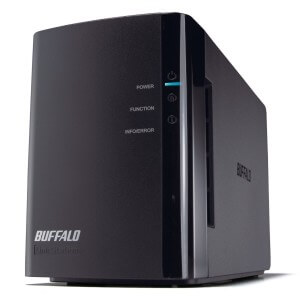Small Business Data Backups

Small businesses are consistency trying to balance being efficient with cost. One place not to skimp on savings is small business data backups. Any business owner or anyone who has ever used a computer should know it is essential to back up your data.
Data losses happen every day. Whether it is an unexpected mechanical drive failure, a fall of an external drive off or a desk, and a piece of malicious software having an up-to-date copy your data could be enough to save your company from a disaster. Do a quick mental check of everything your business computers like email, customer information, tax records, QuickBooks, forms, receipts – wow a lot on there right?
Many customers I provide data recovery services for are not backing up their data at all or not frequently enough to prevent problems, sometimes backup solutions in place do fail or are never checked and produce little to nothing.
I will try to cover how to some misconceptions that small business data backups are costly or unnecessary and give you options on how I can provide regularly back up data in a secure, efficient and cost-effective way.
What is a backup, or what kinds of backups are there?
A backup is a copy of your data. There are images or clones of drives which typically all data on a computer including the operating systems, programs, and all files. There are partial backups which you may only grab certain items or files. Finally, there are incremental backups which typically update changes to a full backup. Backups are meant to be restored if data loss occurs. A single copy of data regards of the media is not a backup.
How many backups should I have and where?
Ideally 2 or 3 minimum separate solutions for small business data backups. It’s OK to keep a copy of your backups on site. Ideally, you should have backups on at a separate location such as two physical sites, or one site and two cloud storage providers. With onsite physical backups, there are disasters like flooding, fire that can lose all data forever.
Where should I start?
A simple way to do this on your own is to backup to an external hard drive. External hard drives are inexpensive reasonably fast, and you can drag and drop and files with Windows, Mac or Linux. There is free and paid software exists for backing up computers. Windows includes Windows Backup, and Apple includes Time Machine on OSX. the downside to external hard drives is they are not redundant. A single drive is typically in the enclosure and can fail. External hard drives often get bumped or dropped and have physical damage leading to a mechanically bad drive that needs recovery. Also, you have to plug them in via USB. For desktop users, this is not a problem but many newer portable versions do not have power switches leading to running them consistently. For laptops I frequently find users or business forget to complete backups because the drives are unplugged or set the drive in a desk drawer. A drive that is not being backed up isn’t worth much when a data loss occurs but for a cheap easy way to backup external hard drives are not bulletproof but good. An external hard drive is a one time purchase and you might need to buy software to fit your needs.
What if an external drive is not enough?
I suggest network attached storage (NAS), cloud storage or typically both. A NAS sits on a network so computers wired or wireless can connect to it. In addition to backing up, you can use it for file sharing. NAS’s often include two or more hard drives in a RAID configuration, so even if one drive fails you do not lose your data. Since a NAS sits on your network there is not plugging in a drive or manually copying files. It is far more convenient for laptop users as they can keep mobility on the network and have access to data or being backing data up with working. Backup software can be scheduled so you do not miss backups. A NAS is usually a one time purchase plus the cost of software and setup time. A NAS is far more convenient, robust and efficient than a traditional external hard drives offers redundancy and is more efficient but they do cost more.
Cloud services are becoming more and more used for backups. In addition to backups, cloud services can also be used to sync data over the internet. A cloud service built for business is usually the better choice. Plans, options, and storage space vary by the provider as well as does speed and terms. Cloud services are great for off-site backups and syncing data. A cloud service is a monthly/yearly cost plus you might need additional or setup help.
A cloud service plus a NAS is typically what I recommend for small business data backups.
Why is a backup solution so important?
Data recovery is expensive, takes time and there is never any guarantee you are going to cover all your data. Data losses and downtime can be detrimental to small businesses. It’s better to secure and backup your data now then have a disaster in the future. Small business data backups are crucial to ensure all your data is backed up and secure.
